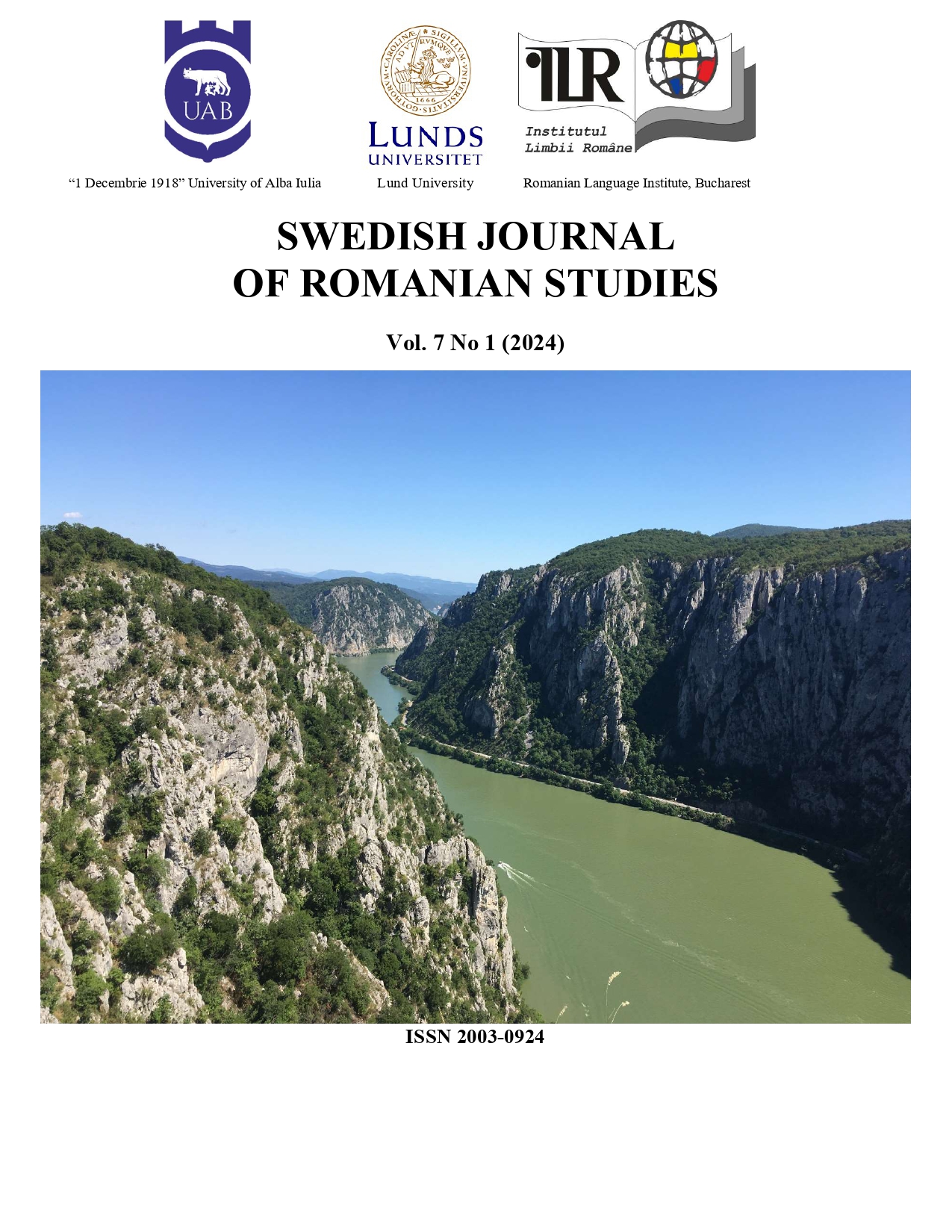Cultural intimacy, cultural distance: methodological aspects of anthropological research into Romanians in Poland
DOI:
https://doi.org/10.35824/sjrs.v7i1.25789Keywords:
Poland, anthropology, methodology, ethnic belonging, RomaniansAbstract
This study focuses on a comparison of two sets of in-depth, face-to-face interviews among Romanians living in Poland about their perceptions of the country and society, and their migrant experiences. The interviews were conducted five years apart, using the same guide, but carried out by Polish interviewers in the first case, and by a Romanian interviewer in the second. Comparative analysis of the material gained in this process reveals that, despite similar content in interviewee responses, the standing of the interviewer was by no means neutral. Crucial for the volume, type, and nature of the collected data – as well as for its interpretation – is the interviewer’s identity. In this regard, the study draws on Michael’s Herzfeld’s concept of ‘cultural intimacy’ to explain the mutual reproduction of different levels of identity and to develop a framework for analyzing the interaction between the social scientists and their interlocutors.
References
Alcidi, C., & Gros, D. (2019). EU mobile workers: A challenge to public finances? Contribution to an informal ECOFIN, Bucharest, 5-6 April, 2019. Retrieved August 6, 2022 from https://www.ceps.eu/wp-content/uploads/2019/04/EU%20Mobile%20Workers.pdf
Anderson, B. (2000). Doing the dirty work? The global politics of domestic labour. New York: Zed Books.
Barth, F. (1969). Ethnic groups and boundaries: The social organization of culture difference. Boston: Little, Brown & Company.
Baumann, G. (1996). Contesting culture: Discourses of identity in multi-ethnic London. Cambridge: Cambridge University Press.
Brubaker, R. (2004). Ethnicity without groups. Cambridge, MA: Harvard University Press.
Crapanzano, V. (2010). Imaginative horizons: An essay in literary-philosophical anthropology. Chicago: University of Chicago Press.
Fedyuk, O., & Zentai, V. (2018). The interview in migration studies: A step towards a dialogue and knowledge co-production? In R. Zapata-Barrero & E. Yalaz (Eds.), Qualitative research in European migration studies (pp. 171-188). Cham: Springer. DOI: https://doi.org/10.1007/978-3-319-76861-8_10
Głowacka-Grajper, M., Nowicka, E., & Połeć, W. (2013). Szamani i nauczyciele: Przemiany kultury Buriatów zachodnich [Shamans and teachers: Transformations of Western Buryat culture]. Warsaw: Wydawnictwo Uniwersytetu Warszawskiego. DOI: https://doi.org/10.31338/uw.9788323513513
Herzfeld, M. (2005). Cultural intimacy: Social poetics in the nation-state (2nd ed.). New York: Routledge.
Joppke, C. (2005). Selecting by origin: Ethnic migration in the liberal state. Cambridge: Harvard University Press.
Kapralski, S., & Lechowski, P. (2018). Romani immigrants from Romania in Poland in the 1990s: Ethnographic observations. Baltic Worlds, 2-3, 70-87.
Nowicka, E. (2021). Between ethnicity, regionalism, and familial memory: Identity dilemmas among the Eastern Romance communities of the Balkan Peninsula. In A. Sorescu-Marinković, M. Dragnea, T. Kahl, B. Njagulov, D. Dyer, & A. Costanzo (Eds.), The Romance-Speaking Balkans: Language and the Politics of Identity (pp. 116-145). Brill. DOI: https://doi.org/10.1163/9789004456174_006
Okely, J. (1983). The traveller-Gypsies. Cambridge: Cambridge University Press.
Pawlak, M. (2015). Recognizing the national identity: Cultural intimacy and the Polish migration to Norway. Prace Etnograficzne, 43(3), 241-258. DOI: https://doi.org/10.4467/22999558.PE.15.017.4879
Radelczuk, J., & Tomaszewska, A. (2018). Społeczeństwo rumuńskie uwięzione w stereotypach [Romanian society trapped in stereotypes]. Roczniki Studenckie Akademii Wojsk Lądowych, 2, 7-20.
Ruths, M., & Anderson, B. (Eds.). (2010). Who needs migrant workers? Labour shortages, immigration, and public policy. Oxford: Oxford University Press. DOI: https://doi.org/10.1093/acprof:oso/9780199580590.001.0001
Ryan, L. (2015). ‘Inside’ and ‘outside’ of what or where? Researching migration through multi-positionalities. Forum: Qualitative Social Research, 6(2), Article 17. http://nbn-resolving.de/urn:nbn:de:0114-fqs1502175
Sorescu-Marinković, A. (2008). To be or not to be Romanian: Field emotions in the Romanian speaking communities from Serbia. In E. Marushiakova (Ed.), Dynamics of national identity and transnational identities in the process of European integration (pp. 55-66). Cambridge: Cambridge Scholars Publishing.
Sorescu-Marinković, A. (2016). Foggy diaspora: Romanian women in Eastern Serbia. Studia Universitatis Babes Bolyai. Sociologia, 61(LXI)/1, 37-57. DOI: https://doi.org/10.1515/subbs-2016-0002.
Downloads
Published
How to Cite
Issue
Section
License
Copyright (c) 2024 Annemarie Sorescu-Marinković, Ewa Nowicka

This work is licensed under a Creative Commons Attribution-NonCommercial 4.0 International License.
Authors who publish with this journal agree to the following terms:
a. Authors retain copyright and grant the journal right of first publication with the work simultaneously licensed under a Creative Commons Attribution-NonCommercial 4.0 International License that allows others to share the work with an acknowledgement of the work's authorship and initial publication in this journal.
b. Authors are able to enter into separate, additional contractual arrangements for the non-exclusive distribution of the journal's published version of the work (e.g., post it to an institutional repository or publish it in a book), with an acknowledgement of its initial publication in this journal.
c. Authors are permitted and encouraged to post their work online (e.g., in institutional repositories or on their website) prior to and during the submission process, as it can lead to productive exchanges, as well as earlier and greater citation of published work (See The Effect of Open Access).

